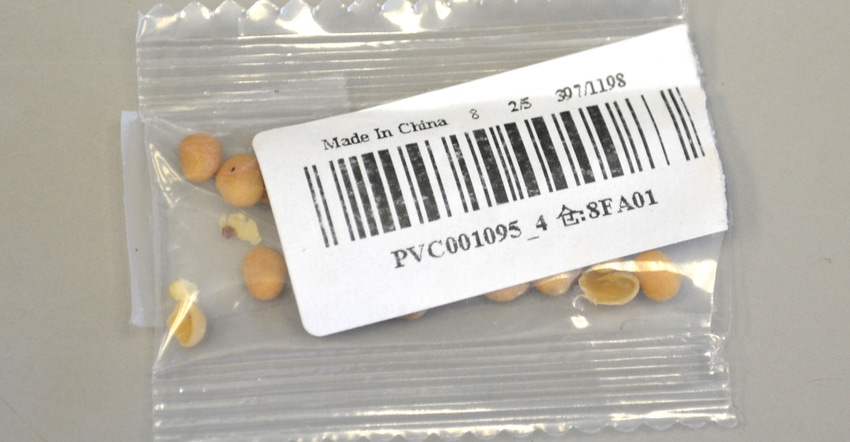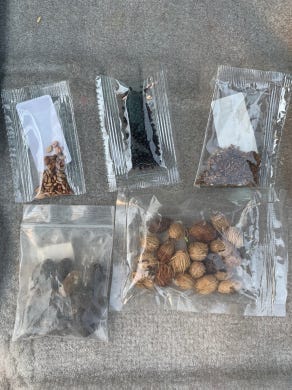
The USDA says mystery seeds received by Americans recently were likely sent in a large-scale “brushing scam,” designed to boost a seller’s ratings. Seed testing results have revealed most to be vegetable, flower, herb and ornamental seeds.
What’s a brushing scam? It happens when a seller fulfills fake orders, which show up on your doorstep in mislabeled packages — like those received by an estimated 1,000 Illinois residents in July and early August. Indiana residents received at least 350 by Aug. 7 as well.
So while the package labels declared they were jewelry or other items, the contents were actually packets of seed. Return labels written in Chinese characters led to alarm for some residents, who wondered if someone in China was sending contaminated seeds.
Iowa residents also reported receiving chemically treated seeds, which can potentially harm people who aren’t trained to handle them. Illinois received one report of a coated batch of seeds, and Indiana didn’t receive any.
Indiana state chemist Don Robison says USDA is also concerned with invasive and herbicide-resistant weeds.
“The most damaging weed we’ve found in Indiana so far is morningglory. And most good chemical programs on the farm control that weed,” Robison says. “Amaranth species are what we’re really worried about.”

CRISIS AVERTED: At first, USDA was concerned the seeds might be noxious weeds like amaranth and/or seed treatments harmful to humans, but tests throughout the Midwest haven’t found any amaranth seeds in the unsolicited packages. Treated seeds have been rare.

They haven’t yet identified amaranth seeds, such as palmer amaranth or waterhemp, in any unsolicited packages sent to Midwest homes. However, Washington state officials did find the species in packages sent to its residents in July.
Back in Indiana, Robison says, “On July 27, we told people, ‘Don’t plant them, don’t throw them away.’”
His department has been accepting unsolicited, Chinese-postmarked packages from Indiana residents ever since. USDA’s Animal and Plant Health Inspection Service (APHIS) is also accepting packages that fit the description.
Disposing of unsolicited seeds
With a sizable backlog of tests to perform by the first week of August, APHIS issued guidelines on how to safely dispose of unwanted seeds in the garbage. Officials from Illinois and other states directed their citizens to throw away seeds with tape and zip-sealed bags if they didn’t want to wait to be called by USDA for instructions on how to mail them in.
Still, the Illinois Department of Agriculture wants seed sent its way. “That backlog was starting to pile up, and we needed to shift gears in Illinois. USDA still prefers residents to send their seeds in; giving instructions on disposal just helped us chip away at the backlog,” says Scott Schirmer, head of plant regulations at IDOA.
His offices received as many as 150 to 200 calls a day at one point. They’ve tapered off to less than 10 a day as of mid-August. Residents can now submit reports online at USDA’s website.
Slowing down
All the media coverage may have helped end the scam, which only works well when fewer people know about it.
Robison says U.S. residents may be sending copycat packages in the wake of the scam. Even if an unsolicited package doesn’t have Chinese symbols in the return address area, residents are encouraged to send seeds to USDA.
“If it’s a powder or something like that instead of seed, we’re telling people to call the police immediately,” Robison says.
In an unfortunate bit of timing, Illinois Extension also mailed packets of forget-me-not flower seeds in July, in an effort to boost census participation.
“We got calls about the seeds from U of I,” Schirmer says. “Those seeds are perfectly fine. It's the unsolicited seeds with false labeling that we don’t know about. That's why we encourage people to report them and take action, either by sending them in or disposing them in a way that limits germination.”
About the Author(s)
You May Also Like




